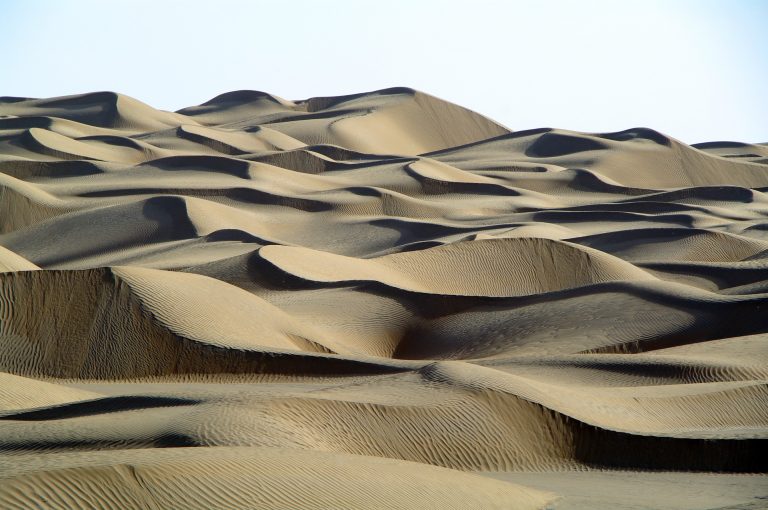Taklamakan Desert in southwest Xinjiang is the driest region in all of China. At 130,000 square miles, it is just slightly smaller than Germany and slightly bigger than New Mexico. It features a cold desert climate since it lies in the rain shadow of the Himalayas. Temperatures range between -4 degrees Fahrenheit (-20 degrees Celsius) in winter to 104 degrees Fahrenheit (40 degrees Celsius) in summer. The region recently flooded, creating a massive lake equivalent to approximately 42,000 soccer fields.
Sinopec, a state-run oil and gas company, was conducting oil exploration in the region when the disaster hit. The floods submerged 30,000 sets of equipment and 50 oil exploration vehicles. Roads and telephone poles built by the company were damaged by the floods.
“The total inundated area [of the flood] is over 116 square miles, and severely impacted the oil field’s production and exploration,” a Sinopec spokesperson said, according to the communist Chinese media Observer.
Heavy rainfall in the Dinaer region of the Tianshan Mountains in Xinjiang and melting mountain snow caused the flooding. According to the CCP-backed Global Times, floods have subsided and the company equipment has suffered no substantial damage.
“The team immediately organized emergency rescue. By July 17, it had completed equipment clearance, camp restoration, and road dredging, with production back underway… More than 30,000 geophones wading through the flood during the disaster were dried, passed inspection, and had been put back into normal production,” the media outlet reported.
Drought, floods
Success
You are now signed up for our newsletter
Success
Check your email to complete sign up
Communist China has been hit by extreme weather recently. It has suffered severe droughts and massive flooding. For example, in Fujian Province, a drought that began last October continues today. The region has received less than 25 percent of the normal rainfall accumulation, according to a July 29 report by NASA.
Between October 2020 and February 2021, the southern coast of the Yangtze River only received 20 to 50 percent of its normal rainfall. The lack of rain has been so severe that some parts of the Nanxi River have stopped flowing.
“There hasn’t been any water for several months… This year’s drought has lasted the longest… The weather has changed,” a villager told Sixth Tone.
The Chinese province of Henan has also been affected by floods since July 17. More than 300 people have died and 50 are missing. The floods have caused an estimated damage of $12.7 billion. Over 9.3 million people have been affected; 1.1 million relocated; and 815,000 have been evacuated.
China’s State Council announced the establishment of a team to “investigate and evaluate” the flooding and deaths. The team would reportedly assess whether there was any “dereliction of duty” and will “hold people accountable.”
Henan is a key transport hub and home to major businesses. The floods have affected railways and disrupted the transportation of goods. Industrial areas have been flooded; water has entered warehouses and machineries. In an interview with CNBC, Pawan Joshi, executive vice president of supply chain software firm E2open, said that the situation in communist China could affect holiday shopping in the United States.
“Black Friday and the holiday season, for which products (and raw materials) are being staged, will face the brunt of the impact… Consumer electronics, dorm room furniture, clothing, and appliances will all continue to be in short supply as back-to-school shopping starts up, and will trickle into the peak holiday shopping season,” Joshi told the media outlet.














